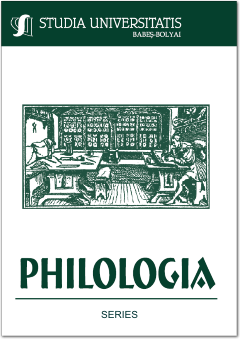ADVERBIALS WITH ADJECTIVAL BASIS IN BRAZILIAN PORTUGUESE AND THEIR FREQUENCY IN SPOKEN AND WRITTEN LANGUAGE
ADVERBIALS WITH ADJECTIVAL BASIS IN BRAZILIAN PORTUGUESE AND THEIR FREQUENCY IN SPOKEN AND WRITTEN LANGUAGE
Author(s): Katharina Gerhalter, Stefan KochSubject(s): Morphology, Other Language Literature, Phraseology
Published by: Studia Universitatis Babes-Bolyai
Keywords: adverbials; adverbial locutions; adjective-adverbs; adverbs ending in –mente; Brazilian Portuguese; frequency; written vs. spoken language;
Summary/Abstract: Adverbials with Adjectival Basis in Brazilian Portuguese and Their Frequency in Spoken and Written Language. The present paper focuses on the use of adverbs with an adjectival lexical base in spoken and written present-day Brazilian Portuguese. We compare the frequencies of three different types of adverbials: adverbs in mente (e.g. absolutamente), adjective-adverbs (e.g. alto in falar alto ‘speak loudly’) and prepositional phrases with adjectives as the post-prepositional element (e.g. de novo), the latter being the main focus of this study. The analysis is based on the Discurso & Gramática-corpus, which consists of oral interviews of 170 informants and their written texts on the same topic as the one in the interviews. The data shows that prepositional phrases are less frequent (in terms of type and token frequency) than adjective-adverbs and adverbs ending in mente. Regarding the difference between spoken and written language, adverbs in mente occur remarkably more often in written texts while adjective-adverbs are more frequent in spoken language. Prepositional phrases, instead, occur equally in both codes. Finally, we draw the conclusion that prepositional phrases form a small but stable inventory of lexicalised forms, which are not marked for any code.
Journal: Studia Universitatis Babes-Bolyai - Philologia
- Issue Year: 65/2020
- Issue No: 4
- Page Range: 189-208
- Page Count: 20
- Language: English

